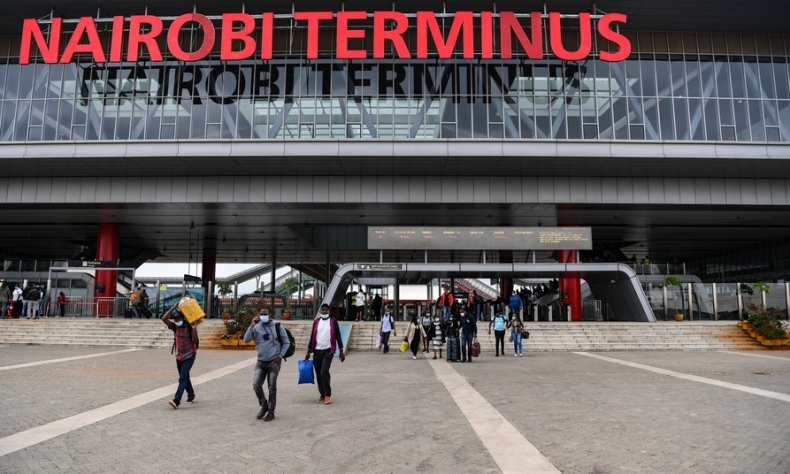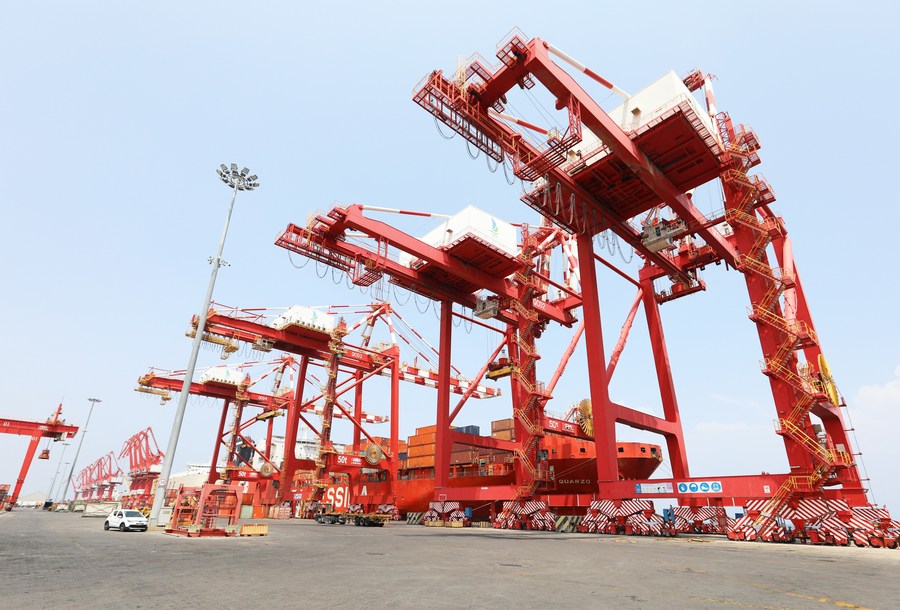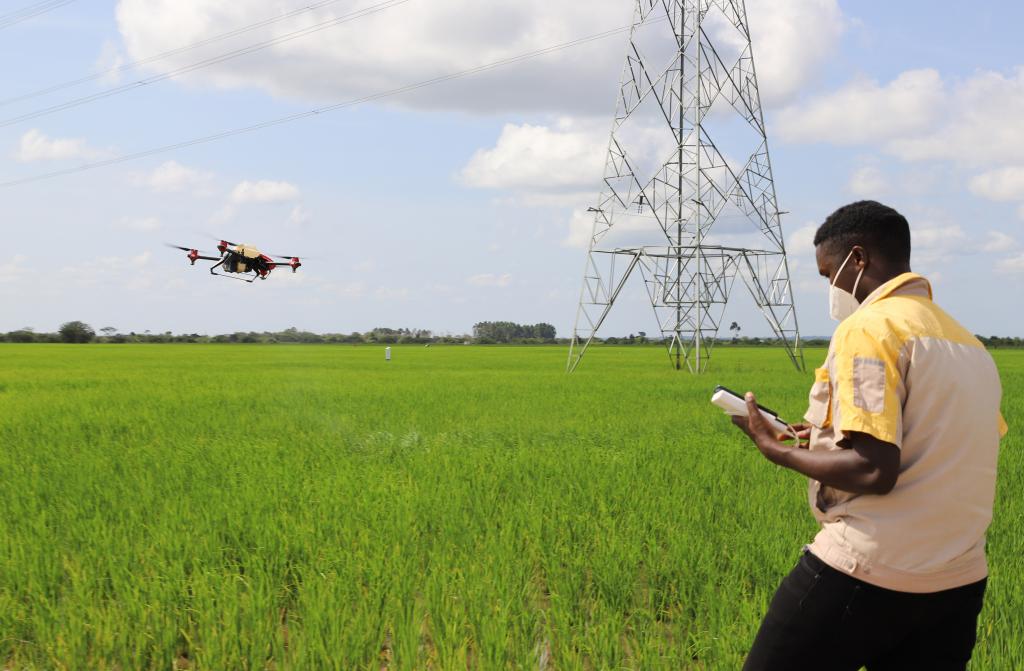Deepening China-Africa Ties in 2023

There is no doubt that the China-Africa cooperation has opened up many African economies to modernisation, that can only add fresh impetus to continental development.
Morgan Stanley, a multinational investment and financial services firm, recently released a report on the global economic outlook for 2023 that paints a not-so-rosy picture. The report, dubbed 2023 Global Macro Outlook: Inflation Peaks, Growth Slows, opines that the year 2023 is likely to witness a “weaker growth, less inflation and the end of the rate hikes, with the US narrowly missing a recession, Europe contracting and Asia offering green shoots for growth.” Morgan Stanley estimates the global economy to grow at 3 percent in 2022 and 2.2 percent in 2023. A further analysis of the economic outlook in the EU and the UK points to a tougher road ahead for most economies. The US is expected to have a soft landing and tepid recovery. The Asian outlook is optimistic and China, being a key economy, is shoring up the economic performance of the Asian economy.
China’s economy is forecasted to grow at 5 percent in 2023. This will boost private consumption and help the global supply chains to recover fully in the wake of the ease of the internal COVID-19 restrictions. This feeds into the wider scheme of international cooperation that the Chinese government has been conducting with the rest of the world, particularly through the Belt and Road Initiative (BRI). The post-COVID-19 relationship between China and Africa has focused firmly on development cooperation. The year 2022 saw significant growth in Sino-African relations, particularly with regard to the BRI, the Forum on China-Africa Cooperation (FOCAC) and the mega China International Import Expo, meant to open up the Chinese domestic market to imports from the African countries.
Improving connectivity
Several projects under the BRI were started, continued or completed during 2022. Some of the BRI projects in Africa include building of the coastal railway line in Nigeria, Bagamoyo Port in Tanzania, infrastructure mines in the Democratic Republic of the Congo, Chad-Sudan Railway and the Mphanda Nkuwa Dam and Hydroelectric Station, to name but a few. The completion of these infrastructural projects has promoted trade among African countries and with the rest of the world.

Speaking at the Coordinators’ Meeting on the Implementation of the Follow-up Actions of the Eighth FOCAC Ministerial Conference, dubbed China and Africa: Strengthening Friendship, Solidarity and Cooperation for a New Era of Common Development, Chinese State Councillor Wang Yi enumerated some of the projects that have been completed as a result of the positive economic partnership between China and Africa. In Senegal, the completion of the Chinese-funded Foundiougne Bridge, West Africa’s largest bridge costing $71 million, has improved the road network and eased traffic flow. This has led to increased economic and commercial exchanges around Fatick, a town in southwest Senegal.
Besides improving the connectivity between Fatick and other cities, the bridge is instrumental in decongesting the Port of Dakar and supporting regional economic growth in agriculture, fisheries and tourism sectors in Senegal and its neighbouring countries of the Gambia, Guinea, Guinea-Bissau and Mali. Meanwhile in Kenya, the completion of the 27-km Nairobi Expressway that connects Jomo Kenyatta International Airport from the east to the west of Nairobi has improved accessibility, affordability and reliability of the transport infrastructure system in the capital.
In Cameroon, the completion of the Kribi-Lolabe Highway in the southwestern region has opened it up for trade and development of industrial zones. The highway also connects Kribi Deep Seaport with the country’s N7 national highway. Further north in Egypt, the China-built 10th of Ramadan LRT – an exemplary project of China-Egypt cooperation – was completed and will improve logistics of containerised transport for importers and exporters between the Port of Alexandria, Damietta, Port Said and Sokhna. The project has also promoted the ease of doing business by providing flexibility for shippers through round-the-clock operations.
These Chinese-backed projects, under the frameworks of the Sino-African cooperation, are playing a pivotal role in economic growth, development and industrialisation of the continent.

Agricultural cooperation
The foundation that has been built between China and Africa is a formidable building block for impactful cooperation. This new year of 2023 offers fresh impetus that will require a strategic approach to cooperation geared towards improving the post-COVID-19 economic recovery in Africa. The focus will now turn to food security as a priority area of strengthened cooperation. While we appreciate China’s effort in promoting food security on the continent, African countries also hope to learn agribusiness technology and share agricultural machinery that will improve productivity and cure the perennial problem of over-dependency on traditional farming methods.
The signing of exchange letters with 12 African countries on zero tariff for 98 percent of African exports to China in 2022 is a step in the right direction. This guarantees African economies a ready market for their agricultural produce through “green lanes.” And while the launch of the joint centres for modern agricultural technology exchange, demonstration and training in four African countries is a good starting point, there is a need to spread this collaboration to more than half of the African countries. This will help in creating agribusiness-led jobs, improving livelihoods in rural areas and accelerating the fight against poverty in Africa.
Looking forward
As 2023 unfolds, the China-Africa relations should focus on partnerships for economic development in the digital economy, green and low-carbon sectors, manufacturing, and health systems that include construction of hospitals and production of vaccines. More importantly, China’s promise of waiving 23 interest-free loans for 17 African countries is expected to ease Africa’s debt burden and provide more resources for high-impact projects. At the advent of COVID-19, Africa estimated that a debt relief in the range of $100-150 billion would help the continent to cope with the negative effects of the pandemic.
There is no doubt that the China-Africa cooperation has opened up many African economies to modernisation, that can only add fresh impetus to continental development, generate positive energy for the continent’s stability and usher in a new era of hope.
The author is economist, consultant and regional commentator on trade and investment based in Nairobi, Kenya.
 Facebook
Facebook
 Twitter
Twitter
 Linkedin
Linkedin
 Google +
Google +










